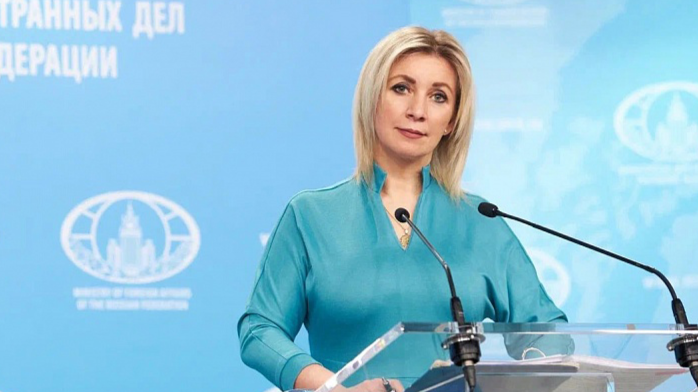Listen to the article
Russian Official Accuses West of Leading Global Disinformation Campaigns
Russian Foreign Ministry spokesperson Maria Zakharova has denounced Western nations as the primary creators and distributors of fake news globally, describing misinformation as a “pandemic” in today’s information landscape. Her comments came during her address at the “Dialogue about Fakes 3.0” International Forum on Wednesday, an event that drew experts from 80 countries.
Speaking to the international audience, Zakharova was unequivocal in her assessment: “The main producers of fake news, the inventors of systems for spreading disinformation, are undoubtedly the Western world.” She further claimed Western powers are “the masterminds behind information warfare” currently playing out across global media channels and digital platforms.
The forum, which has become a significant gathering for discussing misinformation in the digital age, focused on several pressing topics including generative artificial intelligence, deepfake technology, and the challenges facing science communication and education in an era of widespread disinformation.
Zakharova specifically highlighted how planned diplomatic engagements between Russia and the United States in Budapest have reportedly been undermined by what she characterized as “anonymous sources, disinformation, and leaks from some media outlets.” This reference appears to address recent complications in bilateral relations between the two powers, though specific details about the Budapest meetings were not elaborated upon.
The Russian spokesperson raised particular concerns about artificial intelligence technologies and their potential misuse. According to Zakharova, AI can function as “a tool to influence people’s minds,” and she alleged that certain Western countries are attempting to “leverage AI to consolidate inequality between nations and deprive other countries of their digital sovereignty.”
These accusations come amid growing global tension over information warfare and the increasing sophistication of disinformation campaigns. The international community has witnessed a significant rise in deepfakes, manipulated content, and coordinated misinformation efforts in recent years, particularly surrounding major geopolitical events and elections.
The forum’s broad international participation – with experts from 80 nations – underscores the global nature of these concerns. Discussions reportedly extended beyond merely identifying problems to exploring potential solutions and regulatory frameworks that might address the proliferation of false information without unduly restricting legitimate speech.
Russia’s accusations against Western nations come at a time when Moscow itself faces numerous allegations from international organizations and Western governments about conducting systematic disinformation campaigns. Multiple reports from intelligence agencies, academic institutions, and independent researchers have documented Russian-linked influence operations targeting elections and public opinion in Europe, North America, and elsewhere.
The “Dialogue about Fakes” forum, now in its third iteration, represents part of a broader international conversation about how societies should respond to the challenges posed by misinformation in the digital age. While there is growing consensus about the dangers of unchecked fake news, there remains significant disagreement about regulatory approaches, appropriate oversight mechanisms, and the allocation of responsibility between governments, technology platforms, and media organizations.
As digital technologies continue to evolve and artificial intelligence capabilities advance, the international community faces increasingly complex questions about information integrity, national sovereignty in the digital sphere, and the balance between combating harmful misinformation while protecting freedom of expression and press freedoms.
Fact Checker
Verify the accuracy of this article using The Disinformation Commission analysis and real-time sources.




7 Comments
This is a complex and politically charged topic. I’m interested to learn more about the specific evidence and methodologies used in the study. Addressing misinformation requires a nuanced, fact-based approach that avoids overly partisan rhetoric.
This is a highly charged and politically sensitive topic. I’m curious to learn more about the metrics and methodologies used in the study to assess the sources of misinformation globally. Transparent and rigorous research is critical for developing appropriate policy responses.
Well said. Identifying the root causes and drivers of misinformation, regardless of the origin, is essential for crafting effective solutions. I hope the full study report provides more detailed analysis to inform this important discussion.
Concerning allegations, but I’d like to see the full study before drawing any firm conclusions. Misinformation is a global challenge that requires a collaborative, evidence-based response. Assigning blame without rigorous analysis risks further inflaming political tensions.
Interesting report on the global disinformation landscape. While the accusations against Western nations are concerning, it’s important to examine the evidence objectively and avoid dismissive rhetoric on either side. What specific actions or policies are being highlighted as leading sources of misinformation?
Agreed, the issue of misinformation is complex and requires a nuanced, evidence-based approach from all sides. Focusing on constructive solutions rather than finger-pointing will be key to addressing this challenge effectively.
While the accusations against Western nations are serious, I think it’s important to examine this issue from multiple angles. Misinformation and disinformation campaigns can originate from a variety of state and non-state actors globally. A balanced, comprehensive assessment is needed.